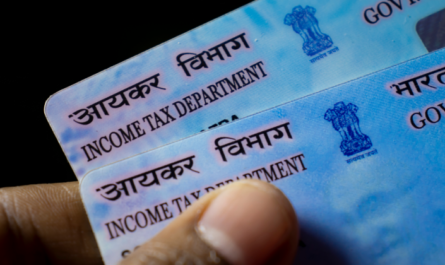Most people strive for happiness, but it can often feel elusive. We live in a world that constantly demands our attention and energy, making it challenging to prioritize our well-being. One of our most powerful tools for achieving happiness is the ability to say no. By learning to say no to the things that drain us, we create space for the things that truly matter. In this article, we’ll explore ten things you should start saying no to to be happier.
1. Toxic Relationships
Toxic relationships can take many forms, from friends who constantly criticize you to partners who manipulate you. These relationships drain your energy and leave you feeling depleted. If you want to be happier, it’s essential to identify toxic relationships in your life and take steps to distance yourself from them. This may mean setting clear boundaries, limiting contact, or ending the relationship altogether. Remember, you deserve to be surrounded by people who uplift and support you.
2. Unrealistic Expectations
We all have expectations for ourselves and others, but when those expectations become unrealistic, they can lead to frustration and disappointment. If you constantly strive for perfection or hold others to impossible standards, it’s time to reevaluate. Set realistic goals for yourself and focus on your happiness and well-being. Remember, progress is more important than perfection.
3. Constant Comparison
In this age of social media, it’s easy to fall into the trap of constantly comparing ourselves to others. We see edited versions of people’s lives and assume everyone else has it all figured out. However, this comparison game is a recipe for unhappiness. Instead of focusing on what we think others have, embrace your unique qualities and strengths. Celebrate your successes and progress, no matter how small they may seem.
4. Negative Self-Talk
The way we talk to ourselves has a profound impact on our happiness and well-being. If you engage in negative self-talk, it’s time to break the cycle. Challenge negative thoughts and replace them with positive affirmations. Practice self-compassion and remind yourself that you are worthy of love and respect. Remember, your inner dialogue shapes your reality, so choose your words wisely.
5. Overcommitment
In our fast-paced world, falling into the overcommitment trap is easy. We say yes to every invitation, take on every project, and stretch ourselves thin. However, this constant busyness can lead to burnout and unhappiness. If you want to be happier, it’s essential to prioritize your time and energy. Learn to say no to commitments that don’t align with your values or goals. Delegate tasks when possible and ask for help when you need it.
6. Fear of Failure
Fear of failure can keep us from pursuing our dreams and trying new things. We become so afraid of making mistakes that we never take risks or step outside our comfort zone. However, failure is a natural part of growth and learning. If you want to be happier, reframing failure as an opportunity to learn and improve is essential. Embrace challenges and take calculated risks. Remember, the only actual failure is not trying at all.
7. People-Pleasing
People-pleasing is a common trap that many of us fall into. We go out of our way to make others happy, even at the expense of our well-being. However, constantly trying to please others can be emotionally exhausting and lead to resentment. If you want to be happier, setting healthy boundaries and prioritizing your needs is essential. Communicate assertively and respectfully, and remember that it’s okay to say no sometimes.
8. Procrastination
Procrastination is a habit that can cause a lot of stress and anxiety. When we put things off, we often feel guilty and overwhelmed, leading to unhappiness. If you want to be happier, developing effective time management strategies is essential. Break tasks into smaller, manageable steps and tackle them individually. Remember, progress is better than perfection, so don’t let the desire for perfection hold you back from getting started.
9. Unhealthy Habits
Unhealthy habits, such as poor diet, lack of exercise, or substance abuse, can negatively impact our physical and mental well-being. If you want to be happier, it’s essential to identify habits that negatively impact your health and take steps to change them. Start small by making sustainable changes, such as adding more fruits and vegetables to your diet or going for a walk each day. Seek support from friends, family, or professionals if you need help making lasting changes.
10. Fear of Missing Out (FOMO)
In our connected world, it’s easy to feel missing out if we’re not constantly engaged in social activities or events. However, this fear of missing out (FOMO) can lead to overcommitment and unhappiness. To be happier, you must recognize the value of solitude and self-reflection. Be selective about the activities and events you engage in, and remember that it’s okay to say no sometimes. Quality time with yourself is just as important as time spent with others.
Case Study: From Overwhelmed to Empowered
Tonya, a 38-year-old restaurant manager, had always been a people-pleaser. She would take on extra shifts, agree to every request from her staff, and constantly put the needs of others before her own. This made Tonya feel overwhelmed, stressed, and unfulfilled in her personal and professional life.
One day, Tonya reached a breaking point. She realized that her habit of saying yes to everything was affecting her mental health, relationships, and job performance. Tonya decided it was time to change and started learning to say no.
At first, saying no felt uncomfortable for Tonya. She worried about disappointing others or being perceived as selfish. However, as she began setting boundaries and prioritizing her needs, Tonya noticed a significant improvement in her well-being. She had more energy, felt less stressed, and had more time to focus on the things that truly mattered to her.
As Tonya continued to practice saying no, her relationships improved. She was able to have more honest and open communication with her staff and loved ones. Tonya also discovered that saying no allowed her to say yes to the things that brought her joy and fulfillment, such as pursuing a long-forgotten hobby and spending quality time with family. By learning to say no, Tonya found happiness and empowered herself to live a life true to her values and desires.
Key Takeaways
- Learning to say no is a powerful tool for achieving happiness and prioritizing well-being.
- Say no to toxic relationships that drain your energy and leave you feeling depleted.
- Set realistic expectations for yourself and others, focusing on progress rather than perfection.
- Avoid constantly comparing yourself to others; instead, embrace your unique qualities and strengths.
- Challenge negative self-talk and practice self-compassion and positive affirmations.
- Prioritize your time and energy by saying no to over-commitment and delegating tasks when necessary.
- Reframe the fear of failure as an opportunity for growth and learning, and embrace challenges and calculated risks.
- Set healthy boundaries and prioritize your needs rather than constantly trying to please others.
- Develop effective time management strategies to overcome procrastination and make progress on your goals.
- Identify and say no to unhealthy habits that negatively impact your physical and mental well-being.
- Recognize the value of solitude and self-reflection, and be selective about the activities and events you engage in to avoid FOMO.
Conclusion
Happiness is a choice, and it starts with saying no to the things that no longer serve you. By setting boundaries, prioritizing your well-being, and focusing on the things that truly matter, you can create a life filled with joy and fulfillment. Change doesn’t happen overnight; small steps can lead to significant transformations. Start by identifying one thing from this list that you can say no to today, and take the first step towards a happier, more balanced life.
#Happy #Life #Start



